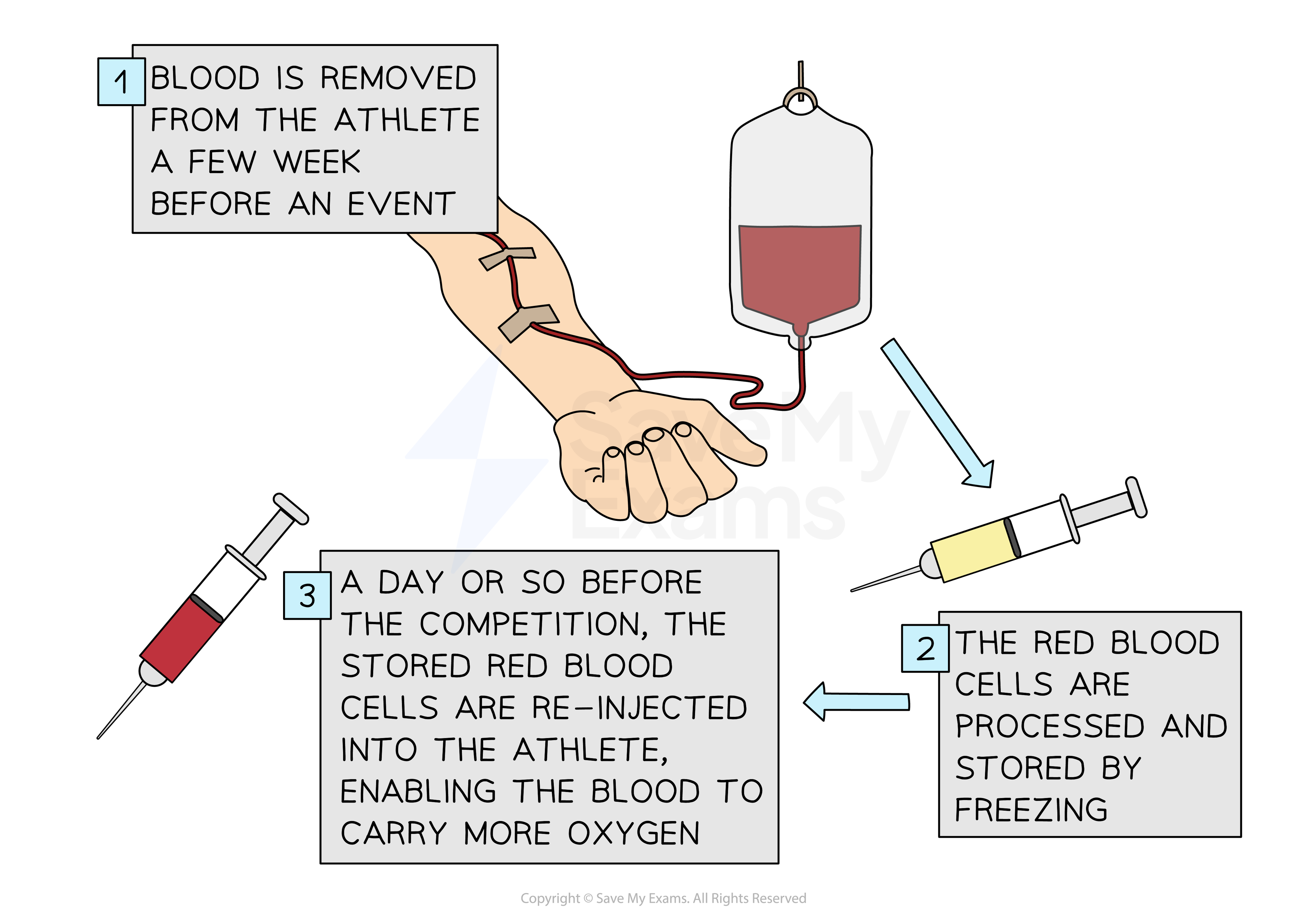Prohibited Methods in Sport (AQA GCSE Physical Education (PE))
Revision Note

Author
Cara HeadExpertise
Biology
Blood Doping
Blood doping is used to increase the number of red blood cells in the body
This is also known as an individual's red blood cell count
This increases cardiovascular fitness because an increase in red blood cells will result in more oxygen being delivered to cells for respiration
Blood doping involves:
Removing blood from the participant a few weeks before an event and freezing it for storage
The participant's body then produces more red blood cells to replace the removed blood
Just before the event (1 -2 days) the removed blood is thawed and injected back into the participant to boost red blood cell count
This technique could benefit endurance athletes who rely on aerobic capacity, e.g.
Long distance runners
Distance swimmers
Distance cyclists
Cross-country skiers
There are many side effects of blood doping, including:
Blood viscosity (thickness) increases; this can lead to blocked blood vessels, known as an embolism
If this happens in the coronary arteries of the heart, a heart attack may occur
Risk of infection from contaminated equipment
Blood doping diagram

Blood doping involves the removal of an athlete's blood, storing it, and then re-injecting it before an event

You've read 0 of your 0 free revision notes
Get unlimited access
to absolutely everything:
- Downloadable PDFs
- Unlimited Revision Notes
- Topic Questions
- Past Papers
- Model Answers
- Videos (Maths and Science)
Did this page help you?